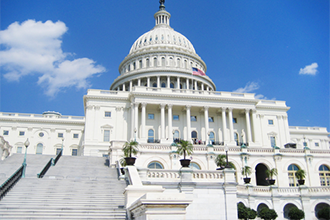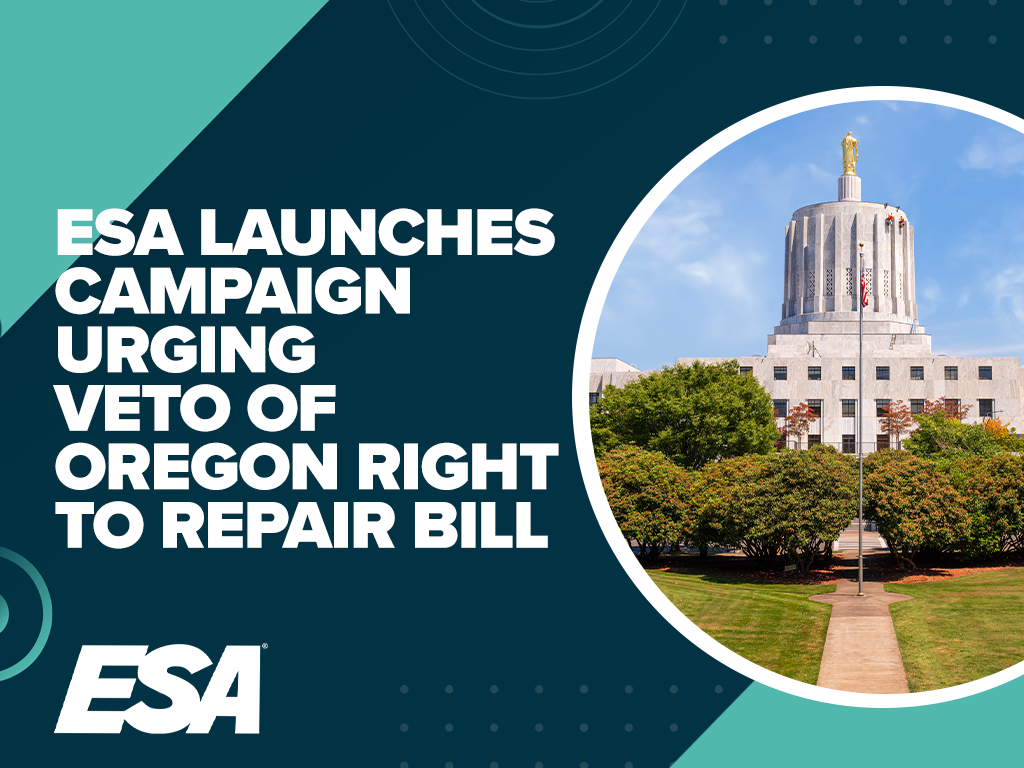The electronic security and life safety industry is a heavily regulated industry for obvious reasons. Consumers want to know their personal protection is assured by objective licensing procedures that preclude felons from accessing their home or having security codes that could effectively unlock their home or business. They want to know their electronic security and life safety systems are installed, monitored and maintained by qualified and vetted professionals. The electronic security and life safety industry is a heavily regulated industry for obvious reasons.
Consumers want to know their personal protection is assured by objective licensing procedures that preclude felons from accessing their home and having security codes that could effectively unlock their home or business. They want to know the electronic security and life safety systems are installed, monitored and maintained by qualified and vetted professionals.
H.R. 3446 by Rep. Carl Issa (R-CA) and S. 1649 by Senator Mike Lee (R-UT) titled the “Restoring Board Immunity Act of 2017” or “RBI Act” were introduced to deal with a growing perception of over-regulation by licensing boards across the nation.
We previously reported on the Supreme Court decision in North Carolina Board of Dental Examiners v. FTC, which held that self-interested licensing boards (Dental Examiners in this case) may be liable for violation of anti-trust laws when their regulations go beyond the authority granted them by legislators or they serve to thwart competition by regulatory overreach.
On September 12, the House Regulatory Reform, Commercial, and Antitrust Law subcommittee of the Judiciary Committee held a hearing on occupational licensing laws. The common theme that emerged from committee members and witnesses was that there is an over-proliferation of licensing laws covering occupations that should not be regulated at all, or minimally at best.
And these occupational licensing laws lacked uniformity that hurt military and economically disadvantaged families due to widely varying licensing requirements and lack of reciprocity. Representative Issa made it clear he was not attacking the legitimate licensing requirements of trades and professions that clearly represent the health, safety and welfare of consumers like doctors, lawyers or construction industries, but he did take issue with licensing laws on occupations like interior designers, shampooers, florists, home entertainment installers and his favorite, casket manufacturers.1
As written, these bills would encourage states to enact licensing laws that take a “least restrictive regulation” approach through state policies. The bills would offer immunity from antitrust liability for states that do two things, 1) adopt the “least restrictive regulation” policies and 2) they pass legislation that enacts “active supervision” over occupational licensing boards.
Active supervision requirements can be fulfilled by passing legislation that creates an “office of supervision of occupational boards”, which would have broad authority over all occupational boards, or pass legislation that establishes effective judicial review of all occupational board decisions.
Either of these forms of “active supervision” could create substantial administrative burdens, but the intent is to foster an environment of public interest-based occupational licensing, not licensing based on the personal interests of practitioners of professions or trades.
These bills seem to have bi-partisan support because they are viewed by proponents to open competition and enhance job opportunities for those who are economically challenged.
Where the electronic security and life safety industry may receive attention from Congress and state legislatures is the lack of uniformity in licensing requirements. Some states have no licensing requirements, some have modest requirements and some have very onerous requirements.
Licensing boards that take it upon themselves to diminish competition and create requirements that reach beyond the actual skillsets needed for particular trades will be most vulnerable to antitrust litigation and legislative intervention.
_________________________________
[1] “H Jud Regulatory Hearing On Occupational Licensing, sked FINAL” Bloomberg Government, September 22, 2017




